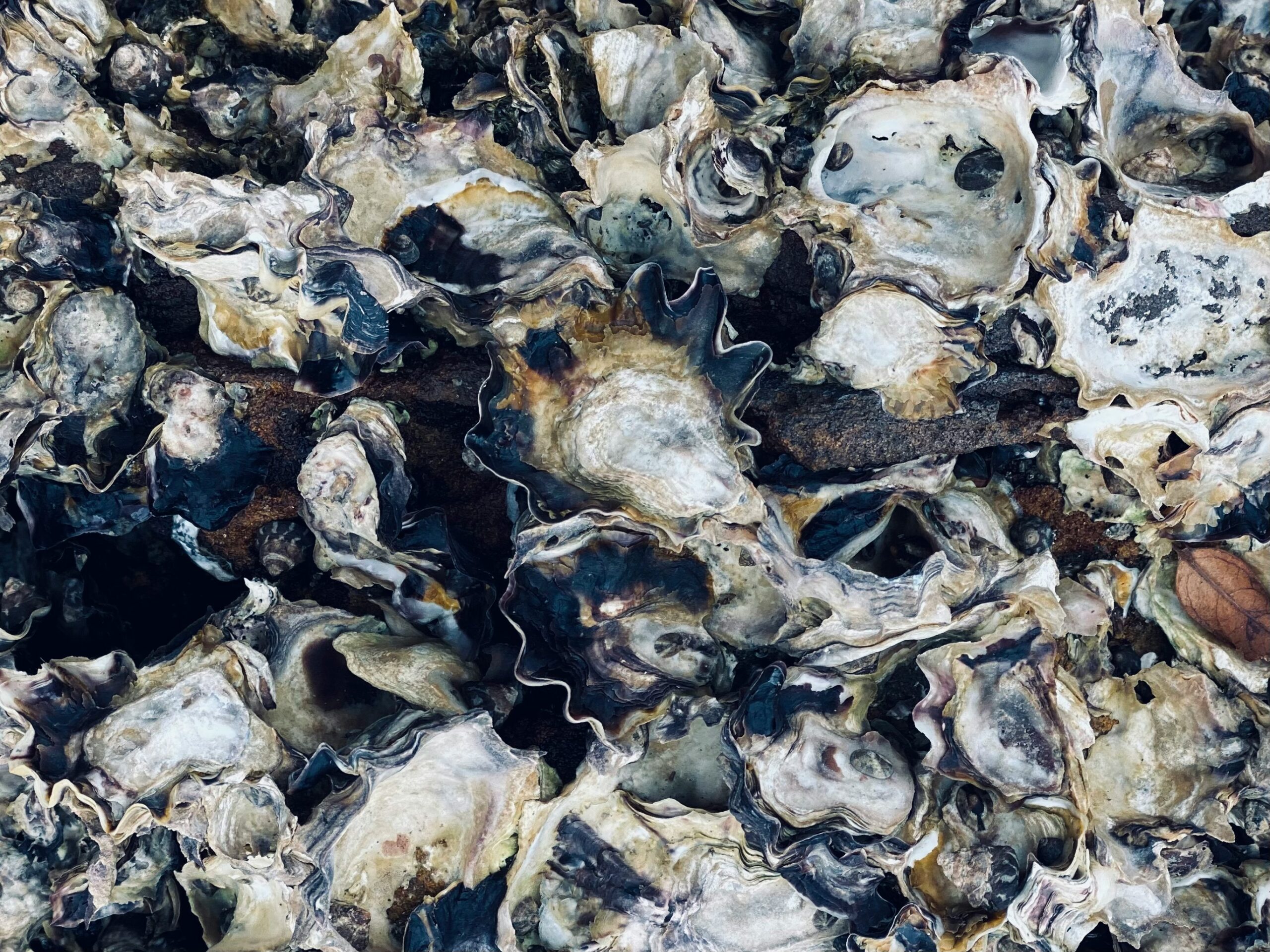Photo by Mandy Henry
Marine conservationists have deployed 4,000 native European oysters housed within 20 specially designed concrete-alternative cubes off the coast of Tyne and Wear, marking the first time this approach has been trialled at scale in UK waters. The innovative structures, created from six tonnes of Marine Crete—a seawater-resistant, carbon-neutral concrete alternative—aim to anchor oysters to the seabed and protect them from the severe weather events that disrupted earlier restoration efforts.
The deployment, led by the Zoological Society of London and nature charity Groundwork North East and Cumbria, represents an adaptive response to the challenges facing oyster restoration in the North Sea. Each cube features engraved ridges and textures mimicking natural marine surfaces, with large portholes in the centre designed to encourage marine life to shelter inside and create hiding spaces for species such as lobsters and fish. The team also deployed more than 35,000 juvenile oysters, or spat, attached to shells, alongside 40 tonnes of repurposed scallop shells that will form the bed of a growing oyster reef, also known as cultch.
The initiative forms part of the Wild Oysters Project, a five-year restoration and conservation project funded by the Stronger Shores Partnership and led by South Tyneside Council. Funding comes from DEFRA as part of the £200 million Flood and Coastal Innovation Programmes, which is managed by the Environment Agency and aims to drive innovation in flood and coastal resilience and adaptation to a changing climate.
Native oyster reefs disappeared from the region more than a century ago, whilst habitat loss, over-harvesting, pollution and disease have led to a decline in numbers of more than 95% across the UK since the 1800s. The restoration effort seeks to revive these ecosystem engineers, which play a crucial role in water filtration and habitat provision. A single adult oyster can filter around 200 litres of water—equivalent to a bath-full—each day, and their reefs can support other species by providing a home to a range of fish, crabs and shrimps. The project looks to bolster the health and resilience of the region through improving water quality, boosting biodiversity and supporting fish nursery habitats.
Celine Gamble, ZSL’s Wild Oysters Project Manager, said: “They may be small, but oysters can play an important role in keeping our seas clean and healthy. As we work to restore native oysters in the North Sea, we are using novel techniques to help us contend with the challenges of restoring species in a challenging environment. The oyster reef cubes have been selected, to help provide a stable environment for the oysters during storms, and we hope that over time they’ll also attract fish, sponges and crustaceans to the reefs as we work to restore this lost ecosystem.”
The project builds upon lessons learned from an October 2023 deployment, when 10,000 mature native oysters were released off the coast of Whitburn, along with 750 tonnes of cultch. However, monitoring revealed that a series of unprecedented weather events—including Storm Babet, a cyclone which hit the coastline just weeks after the oysters were released—dispersed some of those oysters and cultch away from the reef site. With this further knowledge of the challenges that establishing oyster reefs face in the North Sea, the reef blocks were selected for this year’s restoration to make the oysters more storm-resilient as they become established on the seabed.
The deployment site, located 1.8 kilometres off the coast, was prepared with significant community involvement. To prepare the 4,000 oysters for restoration, they were cleaned and scrubbed at North Shields Fish Quay in Tynemouth by 90 local volunteers to ensure that no other species were accidentally introduced during the restoration work. A further 100 local volunteers helped to carefully attach the oysters onto the oyster reef structures using specialist reef glue, before a survey vessel transported and lowered the artificial reefs, the spat and the cultch onto the seabed.
Dr Ashleigh Tinlin-Mackenzie, Marine Ecology Technical Lead for Tyne and Wear at Groundwork North East and Cumbria, praised the work of the volunteers for helping to deploy the oyster reef cubes: “Getting the oyster reef cubes and cultch transported, cleaning and attaching the oysters, and deploying them onto the seabed was a huge logistical challenge, and a real team effort. Volunteers worked alongside our small team of marine conservationists to make it happen.”
She added: “This project is breaking new ground. Like many innovative conservation initiatives, especially those working with nature, we’ve had to stay agile, learning, adapting, and trialling new techniques to give native oysters the best chance of returning to our coastline. Restoring native oysters isn’t just about bringing back a lost species, it is about building a healthier, more resilient North Sea.”
The Stronger Shores Partnership represents a broader regional effort testing how restored marine habitats—including kelp forests, seagrass meadows and oyster reefs—can provide nature-based coastal protection whilst enhancing water quality and marine biodiversity. Earlier this year, the Wild Oysters Project applied to the Marine Management Organisation for a licence to undertake the pilot project off the coast of Whitburn. Monitoring of the newly deployed oyster cubes will continue throughout the project’s duration, with data collection focused on survival rates, reef establishment and broader ecosystem recovery.
